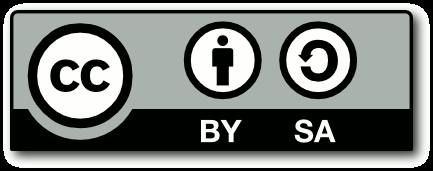Deteksi Dini Gejala Stres pada Mahasiswa Berdasarkan Faktor-Faktor Penyebabnya Menggunakan Metode Logistic Regression
| Dublin Core | PKP Metadata Items | Metadata for this Document | |
| 1. | Title | Title of document | Deteksi Dini Gejala Stres pada Mahasiswa Berdasarkan Faktor-Faktor Penyebabnya Menggunakan Metode Logistic Regression |
| 2. | Creator | Author's name, affiliation, country | Auliya Afifah Adnan Hakim; Universitas Halu Oleo; Indonesia |
| 2. | Creator | Author's name, affiliation, country | Rizal Adi Saputra; Universitas Halu Oleo; Indonesia |
| 2. | Creator | Author's name, affiliation, country | Statiswaty Statiswaty; Universitas Halu Oleo |
| 3. | Subject | Discipline(s) | Informatic Engineering, Machine Learning |
| 3. | Subject | Keyword(s) | Logistic regression, Mental health, Machine learning, Stress |
| 4. | Description | Abstract | Abstrak Di era saat ini, kesehatan mental seringkali diabaikan dibandingkan dengan kesehatan fisik. Hal ini sangat berlaku bagi mahasiswa yang berjuang dengan tekanan yang meningkat dalam kehidupan kuliah. Oleh karena itu, ada kebutuhan mendesak untuk solusi yang dapat mendukung kesehatan mental, salah satunya adalah metode Logistic Regression. Penelitian ini menegaskan efektivitas metode Logistic Regression dalam memprediksi dan mendeteksi dini gejala stres berdasarkan faktor penyebabnya. Eksplorasi fitur dan parameter mengungkap variasi tingkat akurasi, mencapai puncak 95%, diikuti oleh 88% dan 61%. Menganalisis hasil menggunakan Counseling_Service_Use sebagai output menunjukkan keahlian model dalam memprediksi hasil positif, meskipun dengan kecenderungan untuk memprediksi data negatif sebagai positif, dan sebaliknya. Sementara itu, model yang menggunakan Chronic_Illness dan Stress_Level sebagai output menunjukkan kinerja luar biasa dalam memprediksi semua kelas. Secara keseluruhan, penelitian ini memberikan dukungan kuat untuk efektivitas Logistic Regression dalam memprediksi gejala stres, memperkaya pemahaman tentang penerapannya dalam konteks kesehatan mental. Ini menunjukkan bahwa metode ini dapat digunakan sebagai alat yang efektif untuk deteksi dini gejala stres. =============================================== Abstract In the current era, mental health often takes a backseat compared to physical health. This is particularly true for students who are grappling with the increasing pressures of college life. Therefore, there is an urgent need for solutions that can support mental health, one of which is the Logistic Regression method. This study affirms the effectiveness of the Logistic Regression method in predicting and early detecting symptoms of stress based on their causative factors. Exploration of features and parameters revealed variations in accuracy rates, reaching a peak of 95%, followed by 88% and 61%. Analyzing results using Counseling_Service_Use as the output demonstrated the model’s proficiency in predicting positive outcomes, albeit with a tendency to predict negative data as positive, and vice versa. Meanwhile, models employing Chronic_Illness and Stress_Level as outputs exhibited outstanding performance in predicting all classes. Overall, this research provides robust support for the effectiveness of Logistic Regression in predicting stress symptoms, enriching the understanding of its application in the context of mental health. This shows that this method can be used as an effective tool for early detection of stress symptoms. |
| 5. | Publisher | Organizing agency, location | Universitas Sebelas Maret |
| 6. | Contributor | Sponsor(s) | |
| 7. | Date | (YYYY-MM-DD) | 2024-08-10 |
| 8. | Type | Status & genre | Peer-reviewed Article |
| 8. | Type | Type | Logistic regression |
| 9. | Format | File format | |
| 10. | Identifier | Uniform Resource Identifier | https://jurnal.uns.ac.id/ijai/article/view/83441 |
| 10. | Identifier | Digital Object Identifier | https://doi.org/10.20961/ijai.v8i2.83441 |
| 11. | Source | Title; vol., no. (year) | IJAI (Indonesian Journal of Applied Informatics); Vol 8, No 2 (2024) |
| 12. | Language | English=en | ind |
| 13. | Relation | Supp. Files | |
| 14. | Coverage | Geo-spatial location, chronological period, research sample (gender, age, etc.) | |
| 15. | Rights | Copyright and permissions |
Copyright (c) 2024 The Author(s) This work is licensed under a Creative Commons Attribution-ShareAlike 4.0 International License. |

